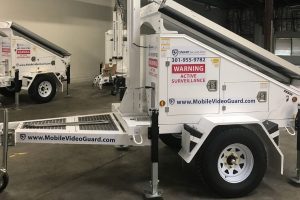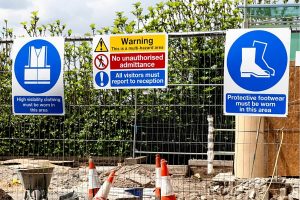With private security guards outnumbering the police roughly 6 to 1 in the United States, it’s not hard to find a security guard. What’s more difficult, however, is finding a good one.
The Challenges of Finding a Good Guard
The Options are Many
The field may be full of options, but they’re not necessarily all good options. It’s very important to take your time and do your research when choosing a security guard or security guard services.
The Regulations Differ
Some states have pretty minimal standards for security guard qualifications and training. Some states have no set regulations for private security services at all. Many security agencies set their own standards for guard qualification and training.
Quality is Inconsistent
This independence is double-edged – it gives security companies the ability to excel, to set their own standards and to develop a competitive edge in the marketplace. It also gives them the ability to hire without background checks, age requirements, or experience.
Second-Job Fatigue
Another problem you may run into is that security is often a second job. Many are police officers working security for the extra income. While not always the case, fatigue can set in after working so many hours, making it harder to watch closely, act fast and think faster.
But if you’re willing to take a few extra steps before you sign that contract, you’ll find a good guard, guaranteed.
While it’s important to carefully evaluate your security guards, evaluating them and making a good choice also hinges on knowing your own mind and being aware of your choice.
After all, a service provider’s ability to meet your needs can depend on how well you communicate that need.
Refer to our 5-item checklist when making your choice, and you’ll be set with top-notch security.
Your Checklist For Hiring High-Quality Security
1. Check Your Expectations
You have to know your problem before you can find your solution. If you’re vaguely aware that you need security, but not exactly sure what you’re looking for, make a mental checklist to start.
Here’s a couple of questions you can ask yourself include:
- What assets am I protecting?
- What risks do I need protection against?
- How many guards will I need to do the job well?
- How long will I need them?
- What is my budget?
The type of job you’re looking at will impact what kind of security guard you need and thus where you should look.
And if you have trouble getting through your security self-assessment, just call one of the companies on your list. A good first test will be whether they are willing to do a consultation with you and provide a recommendation.
2. Check their Experience
Now that you know what kind of security you need, start checking out security guards or security guard agencies in your area. You want to make sure they have the know-how to perform your job, no matter how complicated, and the commitment to do it well, no matter how small.
You may want to find out how long the company has been in business, and what areas of security they specialize in, such as dignitary protection, or events security.
Don’t hesitate to call and ask for them to discuss their process and recommendations. The way they speak about their business and your needs will tell you something about their expertise.
3. Check their Qualifications
As you know, security guard licensing and training requirements vary by state. Check your state’s mandates. If there are none, check with the agency you’re considering.
You can ask your candidates questions about their qualifications such as:
- What are your requirements for hiring armed security guards vs. unarmed security guards?
- Do you require background checks?
- What is your minimum hiring age?
- How many hours of training do your guards have?
- How do you train officers?
- How many years of experience do guards have?
Another thing to take note of as you’re choosing is that your agency or guard may be uniquely qualified depending on whether they are a national or local company.
Each has its pros and cons. National security guard companies may deliver a wide range of more seasoned guards. Local companies are typically more familiar with your area’s security challenges, layout, etc.
Some agencies hire with little experience. Some hire only active-duty or prior law enforcement officers or military to ensure hires are properly trained. If you aren’t comfortable with the requirements, training, certification or experience of an agency, move on.
4. Check Their References
As with any major decision you’d make, check the references! The internet makes this one easier, although it’s important to remember that online reviews can often be unfair.
You may be better off calling – especially if it’s a newer agency. They will be able to give you references for satisfied customers who you can call yourself.
And don’t just check references to find satisfaction ratings. Checking your agency or security guard’s public references is critical to give you a good idea of their scope of work.
The question isn’t just “can they do their work well?” Your question is “can they do MY job well?”
Read reviews, make calls, and ask questions. Get an idea of their industry experience and client satisfaction if you can.
5. Check Your Contract
Consider your contract before you sign it. You’re not just checking for accuracy. You’re checking for confidence and clarity.
Don’t sign without confidence!
By the time you sign, you should be sure that this company or individual can meet your expectations with experience, expertise, and integrity. If you’re holding a contract in your hands, that should mean that you’ve done your research and that your chosen professional security service has passed muster.
Make sure you know what you’re signing up for!
The contract should be clearly written, outlining with no confusion the period of time covered, fees and payment schedules, and expectations for the job to be completed. If you have questions, ask them, If something looks off, point it out.
Just go in aware of the challenges, and be prepared to get the answers you need. The little bit of extra work up front will go a long way toward cost savings, peace of mind, and protection.



















